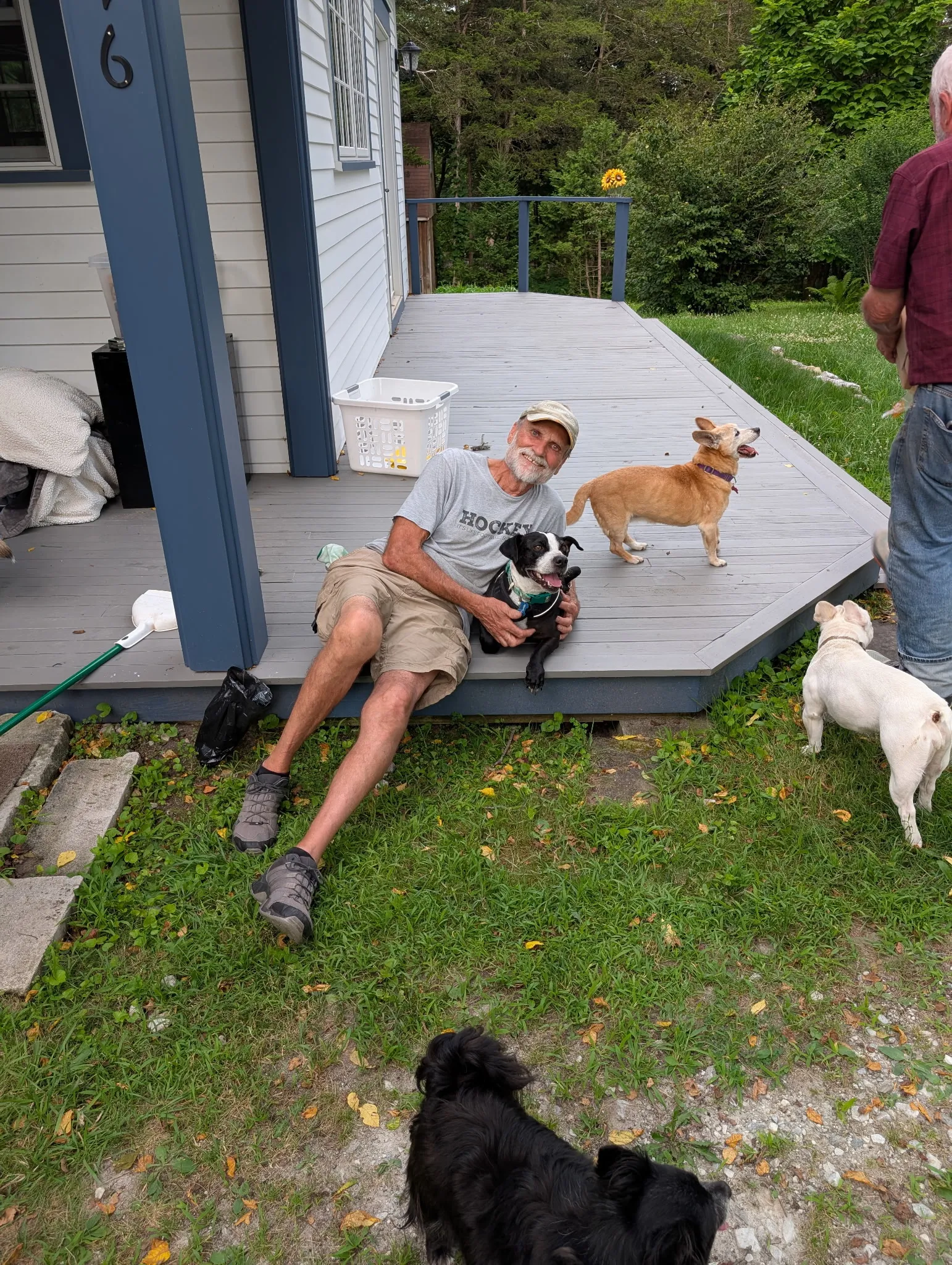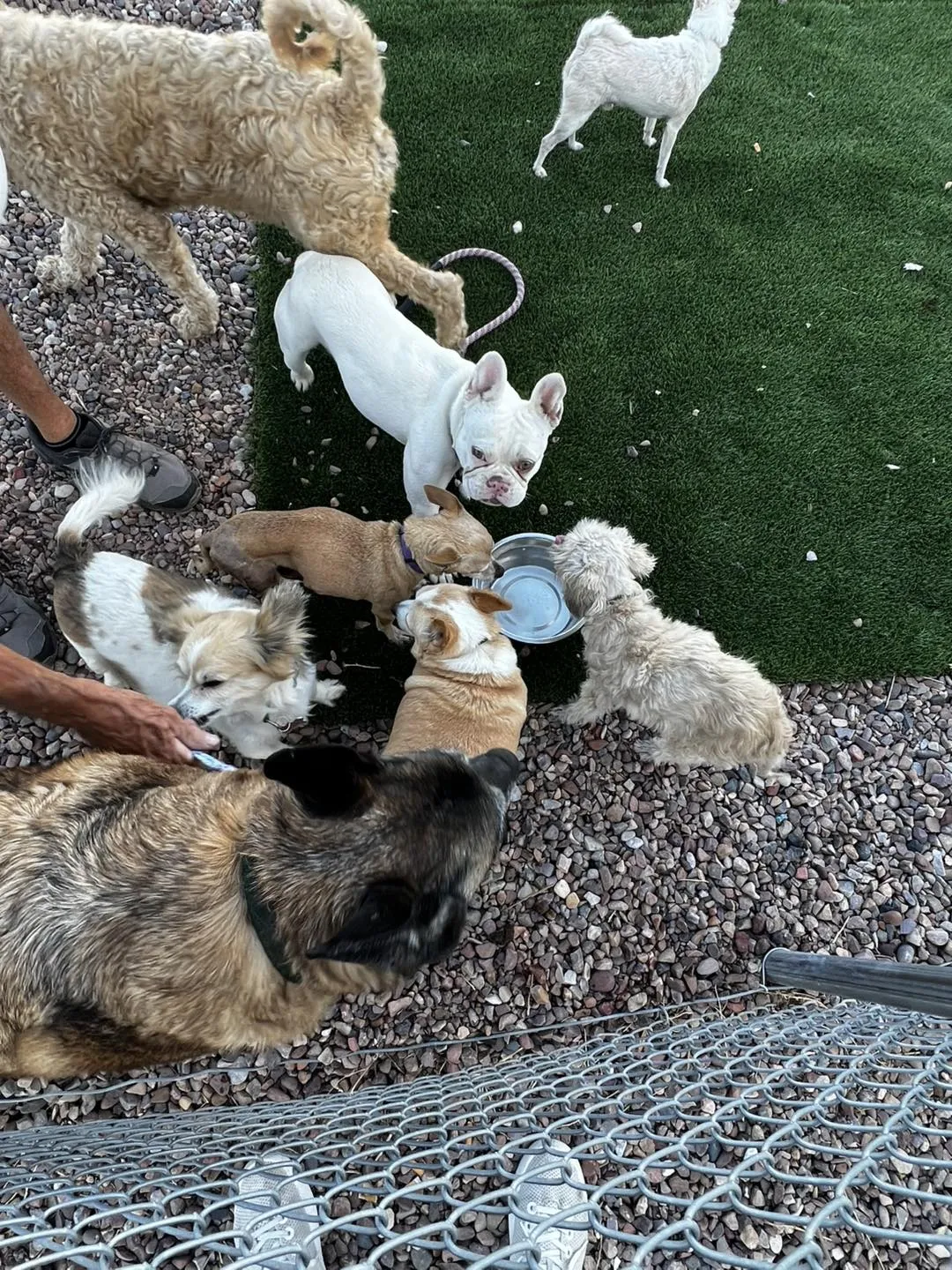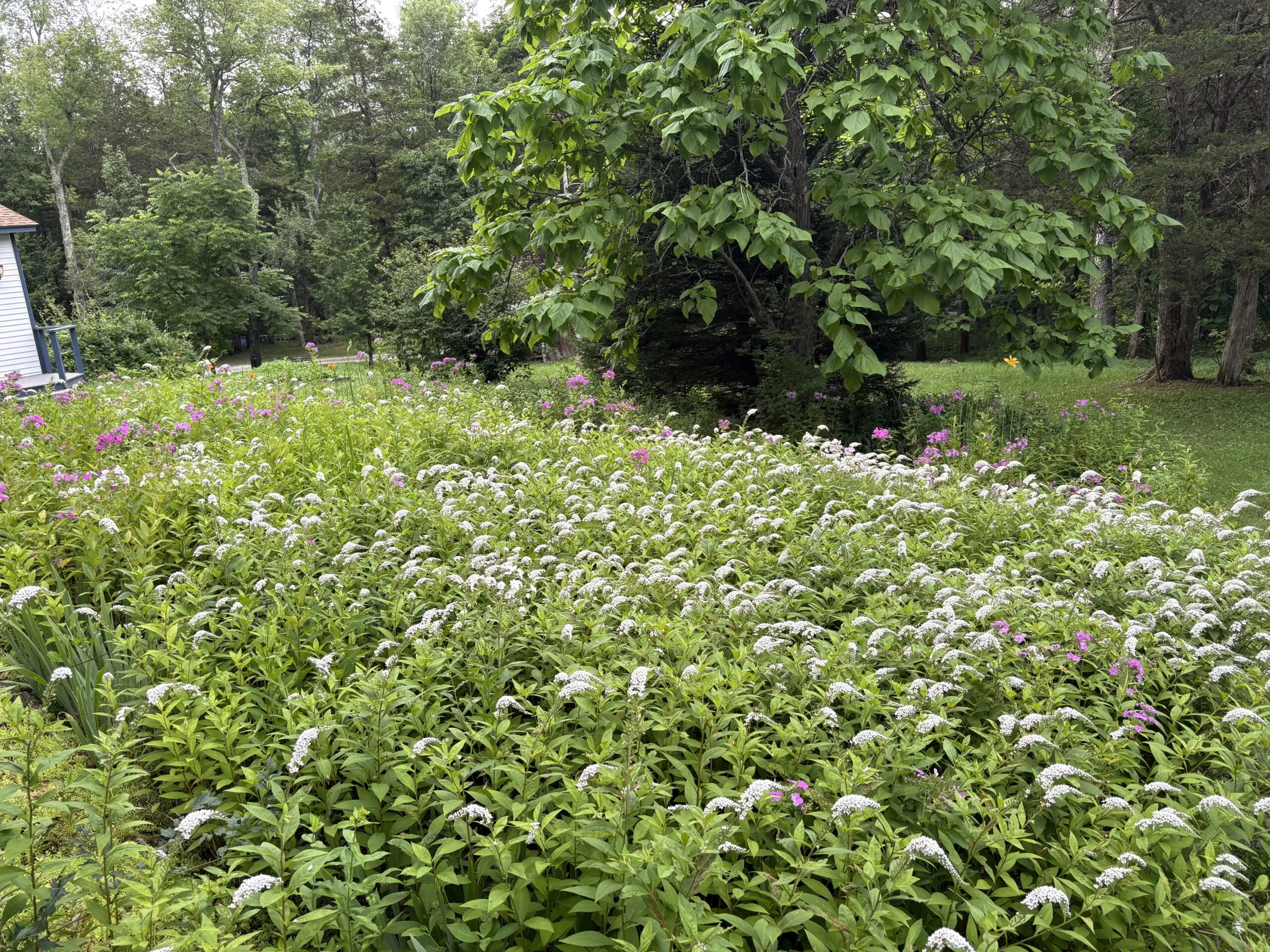The decision to welcome a dog into your home is a deeply rewarding one, and for many, the search often begins with a specific idea in mind. If you’ve been wondering about “Old Rescue Dogs Near Me,” you’re on the path to discovering a truly special kind of companionship. Senior dogs, often overlooked in shelters, possess a unique charm and offer profound loyalty, making them ideal pets for many households. They are often past the boisterous puppy stage, bring a calm presence, and yearn for a loving home to spend their golden years.
Our dedication at Dog Care Story, mirrored by incredible organizations like Meade Canine Rescue, is rooted in the belief that every dog deserves a chance at a happy life, especially those wise old souls who’ve seen many seasons. The commitment to these animals is immense, as exemplified by Meade Canine Rescue’s monumental 3000-mile cross-country journey to relocate 33 dogs to a new, greener environment. This extraordinary effort highlights the profound dedication involved in giving old dogs new lives, showcasing the love and care that senior rescue animals inspire. When you look for an old rescue dog, you’re not just finding a pet; you’re offering a second chance and gaining a grateful companion. Understanding [what age is a dog considered a senior](https://dogcarestory.com/what-age-is-a-dog-considered-a-senior/) is the first step in appreciating their unique needs and charm.
The Unseen Charms of Senior Dog Adoption
Adopting an older dog comes with a host of benefits that often go unnoticed. While puppies are undeniably cute, they demand significant time, training, and patience. Senior dogs, in contrast, frequently come with a lifetime of experience. Many are already house-trained, understand basic commands, and have a calmer demeanor, making them a perfect fit for individuals or families seeking a more relaxed companion. They’ve often lived in a home environment before, so they understand routines and how to interact with people.
Beyond their established manners, senior dogs offer unparalleled affection. They seem to understand the gift of a warm bed and a loving hand, responding with an immense sense of gratitude and loyalty. Their quiet presence can be incredibly comforting, reducing stress and providing a steady, unconditional bond. They require less intense exercise than younger dogs, making them suitable for apartment living or less active lifestyles. Moreover, by adopting a senior dog, you are literally saving a life and making space for another animal in need at a rescue organization. When considering a senior pet, it’s also helpful to learn [when is a dog considered geriatric](https://dogcarestory.com/when-is-a-dog-considered-geriatric/) to better understand their stage of life.
 A happy senior dog resting in its comfortable crate during transport
A happy senior dog resting in its comfortable crate during transport
What to Consider Before Bringing Home an Older Rescue Dog
While adopting a senior dog is incredibly rewarding, it’s important to be prepared for their specific needs. Like elderly humans, senior dogs may require more frequent veterinary check-ups. They might have pre-existing conditions like arthritis, dental issues, or vision and hearing impairments. A thorough vet examination shortly after adoption is crucial to assess their health and establish a baseline.
Dietary needs can also change with age. Senior dogs often benefit from specialized diets designed to support joint health, maintain a healthy weight, and address any specific medical conditions. Patience is key; an older dog might take a little longer to adjust to a new environment and routine. However, with consistent love and a calm home, they quickly settle in and thrive. It’s also wise to research [what age is considered senior for a dog](https://dogcarestory.com/what-age-is-considered-senior-for-a-dog/) for different breeds, as this can vary widely.
How to Find Old Rescue Dogs Near You
Finding “old rescue dogs near me” is easier than you might think, thanks to dedicated organizations. Start by checking your local animal shelters and humane societies. Many have websites where you can browse available dogs by age, breed, and size. Additionally, there are numerous rescue groups specifically dedicated to senior dog adoption, often referred to as “senior sanctuaries” or “golden years rescues.”
Online platforms like Petfinder and Adopt-a-Pet allow you to search for adoptable animals in your area by applying filters for age, making it simple to find older dogs. Don’t hesitate to reach out to these organizations directly. They often know their dogs’ personalities intimately and can help match you with a senior companion whose temperament and needs align with your lifestyle. Attending local adoption events is another great way to meet these deserving dogs in person. Finding [best dogs for seniors to adopt](https://dogcarestory.com/best-dogs-for-seniors-to-adopt/) often depends on an individual’s lifestyle, but many senior rescue dogs fit the bill perfectly.
 Volunteers gently guiding a senior rescue dog during the relocation process
Volunteers gently guiding a senior rescue dog during the relocation process
Meade Canine Rescue’s Dedication to Senior Lives
Organizations like Meade Canine Rescue embody the spirit of second chances for older animals. Their recent move, relocating 33 dogs and several dedicated individuals over 3000 miles, is a testament to the unwavering commitment required to care for and rehome senior pets. This journey wasn’t just about moving; it was about ensuring that every one of those dogs, many of them seniors, continued to receive the best possible care and an opportunity for a loving home.
The success of their relocation, with dogs settling into green pastures and two adoptions already taking place (from past adopters, no less!), underscores the profound impact these rescues have. Their dedication extends beyond immediate care, funding ongoing spay and neuter programs in California even after their primary relocation. This continuous effort reflects their foundational motto: “Giving old dogs new lives.” This mission drives every aspect of their work, emphasizing the invaluable contribution senior dogs make to our lives.
Supporting Senior Dog Rescues
The work of rescuing and caring for senior dogs is a monumental task that relies heavily on community support. If adopting isn’t an option for you right now, there are still many ways to help. Volunteering your time at a local shelter or rescue can make a huge difference, whether it’s walking dogs, helping with administrative tasks, or assisting at adoption events.
Financial contributions are always vital, covering the costs of medical care, food, and shelter for these deserving animals. Spreading awareness about the benefits of senior dog adoption through social media or word-of-mouth can also encourage others to open their hearts and homes. Every small act of kindness contributes to the larger goal of ensuring that old rescue dogs near you and everywhere find the peaceful, loving homes they deserve. If an elderly dog has specific nutritional needs, you might wonder [can i give my elderly dog ensure](https://dogcarestory.com/can-i-give-my-elderly-dog-ensure/), a question best answered by a vet.
 A serene older dog enjoying a peaceful nap in a new, comfortable bed
A serene older dog enjoying a peaceful nap in a new, comfortable bed
Conclusion
The search for “old rescue dogs near me” is more than just a query; it’s a step towards enriching your life with a companion whose quiet wisdom and unwavering love can transform your home. While the journey of a rescue organization like Meade Canine Rescue highlights the immense effort involved, the ultimate reward lies in witnessing these senior dogs find their forever families. Adopting an older dog means offering comfort and security during their golden years, and in return, you’ll receive a bond that is truly priceless. Consider opening your heart to a senior dog—you might just find the most loyal and loving friend you’ve ever known.
References
- American Society for the Prevention of Cruelty to Animals (ASPCA). (n.d.). Adopting a Senior Dog. Retrieved from https://www.aspca.org/
- The Humane Society of the United States. (n.d.). Thinking of Adopting an Older Pet?. Retrieved from https://www.humanesociety.org/
- Veterinary Partner. (n.d.). Geriatric Pet Care. Retrieved from https://veterinarypartner.vin.com/
